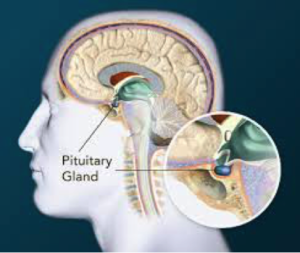 Non-specificity is a hallmark of the signs and symptoms of the most common types of traumatic brain injury, regardless of whether the injury arises as a sports concussion (SC), a motor vehicle crash, a fall, or other inciting events. Fatigue falls into the category of non-specific symptoms and is often the descriptor used by a patient when the term “weak” could suffice. One need not be a physician to formulate a list of a host of potential causes for the type of chronic fatigue that might prompt a patient to complain of the problem, including a recent concussion. Read on and contact a Connecticut brain injury lawyer from Casper & de Toledo to learn more about some potential impacts a concussion can have on a person, including chronic fatigue and pituitary dysfunction, and how we can help if you or a loved one have been wrongfully injured.
Non-specificity is a hallmark of the signs and symptoms of the most common types of traumatic brain injury, regardless of whether the injury arises as a sports concussion (SC), a motor vehicle crash, a fall, or other inciting events. Fatigue falls into the category of non-specific symptoms and is often the descriptor used by a patient when the term “weak” could suffice. One need not be a physician to formulate a list of a host of potential causes for the type of chronic fatigue that might prompt a patient to complain of the problem, including a recent concussion. Read on and contact a Connecticut brain injury lawyer from Casper & de Toledo to learn more about some potential impacts a concussion can have on a person, including chronic fatigue and pituitary dysfunction, and how we can help if you or a loved one have been wrongfully injured.
Chronic Fatigue after a Concussion
Unsurprisingly, concussions, thought to be the mildest form of traumatic brain injury, offer their own array of potential explanations for ensuing chronic fatigue and/or weakness.
The list of potential causes starts with the most obvious physical injuries: both external and internal head injuries, ranging from a bump on the head to subdural and epidural hematoma, contusion of the cortex, and injury to white matter tracts visible and invisible in qualitative imaging sequences.
Fatigue may also be the product of the primary injury, and the secondary neurometabolic cascade that produces more cellular injury, resulting from flooding of glutamate, potassium, calcium, adenosine phosphate, and ionic flux causing electrical dysregulation. See Giza CC, Hovda DA, “The new neurometabolic cascade of concussion”, Neurosurgery. 2014 Oct; 75 Suppl 4:S24-33. (open access); Kutcher JS, Giza CC, “Sports Concussion Diagnosis and Management”, Continuum Review Article (Minneap Minn); 2014; 20(6): 1552-1569. (open access). (Continuum is the continuing medical education (CME) arm of the American Academy of Neurology.) Although this paper published in Continuum is fairly old now, it remains one of the best explanations of concussion that exists.
Chronic fatigue may likewise be the product of chronic brain inflammation, as well as immunological alterations that can follow a traumatic brain injury. And chronic fatigue after traumatic brain injury may be caused by some combination of “all of the above” and/or injury to the pituitary. Interestingly, it is possible symptoms that make the presentation look like post-concussion syndrome may actually be hypopituitary alone.
Pituitary Dysfunction after a Concussion
The pituitary gland is a tiny and delicate organ that sits at the base of the brain, in an area sometimes referred to as the “zone of vulnerability,” that serves as the location of the fulcrum of the head and neck. That location absorbs the brunt of force in most acceleration/deceleration injuries. Injury to the pituitary gland can cause a variety of symptoms including fatigue and/or weakness, as well as headache and dizziness. The most common form of traumatically induced injury to the pituitary is growth hormone deficiency (GHD). Along with fatigue and weakness, hypothyroidism from pituitary dysfunction can also result in depression, reduced cognitive function, and decreased libido for both genders, as well as menstrual irregularities. The condition can be a direct result of blunt trauma to the pituitary, as well as hemorrhage, edema, shear injuries, compromised blood flow and neuroinflammation.
Routine blood tests are not adequate to document hypopituitarism.
Unless specifically ordered, the insulin tolerance test (ITT) is not administered. The ITT involves an injection of insulin, followed by several interval-based blood glucose measurements. The ITT is the gold standard for assessing growth hormone deficiency. It may also hold the key to diagnosis following head injury.
For more on injury to the pituitary gland in traumatic brain injury; see Hacioglu A, Kelestimur F, Tanriverdi F., “Pituitary dysfunction due to sports-related traumatic brain injury”, Pituitary, 2019 Jan 14. (abstract only but the complete article in possession of author).
Contact a Connecticut Brain Injury Attorney
If you or a loved one sustained a concussion due to someone else’s negligence and are experiencing chronic fatigue or pituitary dysfunction, our firm is here to help. Contact Casper & de Toledo today to schedule your free initial consultation with our legal team so we can fight for your rightful compensation.


